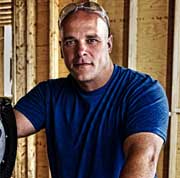Furnaces require an air filter to run effectively and keep your family safe from harmful contaminants in the air. But the only way to make the most of your air filter’s prowess is to choose the right one. Thankfully, you can compare air filters using the MERV rating system introduced by the American Society of Heating, Refrigerating, and Air-Conditioning Engineers (ASHRAE).
The Minimum Efficiency Reporting Value, or MERV, is a standard metric used to compare different air filters based on their performance and ability to trap and block particles in the air. The ratings range from 1 to 16, with the highest rating being the most powerful against air contaminants. However, just because the rating value of the air filter is high doesn’t mean it’s the most effective. You also have to consider whether it’s compatible with your furnace or not.
Here is everything you need to know about air filters and their handling capacity.
The Purpose of Your HVAC Air Filter
- They protect your furnace or HVAC system from dust. Dust and debris in the furnace could result in overheating and could damage crucial parts of the system. An effective air filter could save you a lot of money on repairs and replacements.
- They trap and block harmful particles and contaminants such as pollen, dust mites, and mold and improve the indoor air quality of your house.
An air filter is only effective if it gets replaced every three to six months. If the air filter gets clogged, dust will collect inside the furnace, enabling the harmful particles to contaminate the indoor air while also restricting the airflow. The system could also overheat and begin to fail. So you should avoid testing your air filters’ limits and get them a timely replacement.
Now that you know why air filters are essential, let’s learn how to check what MERV air filter your HVAC system can handle.
How to Know The MERV Handling Capacity of My Furnace
As we mentioned before, the MERV rating ranges from 1 to 16. The higher the rating, the more effective it would be. At the same time, you want to ensure that your furnace or HVAC system can handle that high of a rating.
Examine the system to know what air filter you need. See if the dimensions of the air filter are printed anywhere. Once you find it, purchase an air filter that is compatible with those dimensions. Consult an expert if you are having trouble. It’s essential to use an air filter that fits perfectly in the compartment. Otherwise, it can perform correctly and could backfire.
Can My Furnace Handle a MERV 13 Air Filter?
MERV 13 air filters are powerful. They can trap more particles and improve the quality better than lower values. Filters above 13 can trap bacteria, viruses, and carbon dust, among other harmful pollutants. They are more effective than some lower values, but only if your furnace can handle them.
To know if your furnace can handle a MERV 13 air filter, you’d have to check its compatibility. Scan the furnace to find what size air filter fits the compartments. If an air filter with a 13 MERV rating can slide easily into the air filter compartment’s dimensions, then it’s compatible. Keep in mind that just because an air filter with a 13 MERV rating is better than the lower values doesn’t mean they don’t come with their own issues.
You must replace MERV 13 air filters more frequently than the lower ones, which could result in significant maintenance expenses. They can also spike energy use, which will reflect in your energy bills. Keep these pointers in mind while upgrading your air filter from a lower value to Filter King Merv 13 air filters.
To be safe, it’s best to get expert advice. Air filter technicians can examine your furnace and determine which air filter is perfect for the system. You can also learn all the pros and cons of upgrading this way.
Frequently Asked Questions
How do you know if you have a dirty filter?
You need to replace your air filter frequently so you can enjoy clean air in your home. Although they should be replaced after three to six months, if the air filter becomes dirty before then, you should consider replacing it sooner so the contaminants don’t harm your HVAC system or your family members. Here are some signs that your air filter is dirty and needs to be changed.
- The dust buildup in your home is visible
- Your energy bills are soaring (compare your energy bills with the previous months to know the difference)
- The air filter of the system has a layer of dirt, dust, or other pollutants
- It takes your AC or furnace a relatively long time to cool or heat your home
If you have family members with asthma or allergies living in your home, you should change the filters regularly, perhaps once a month. This is also true if you have pets.
Why should I change my air filters?
Air filters can only serve their purpose if they are clean. A clean air filter improves your home’s indoor air quality. A dirty one not only reduces it but also takes a toll on your energy bills. So don’t take a risk and change your air filter regularly.











